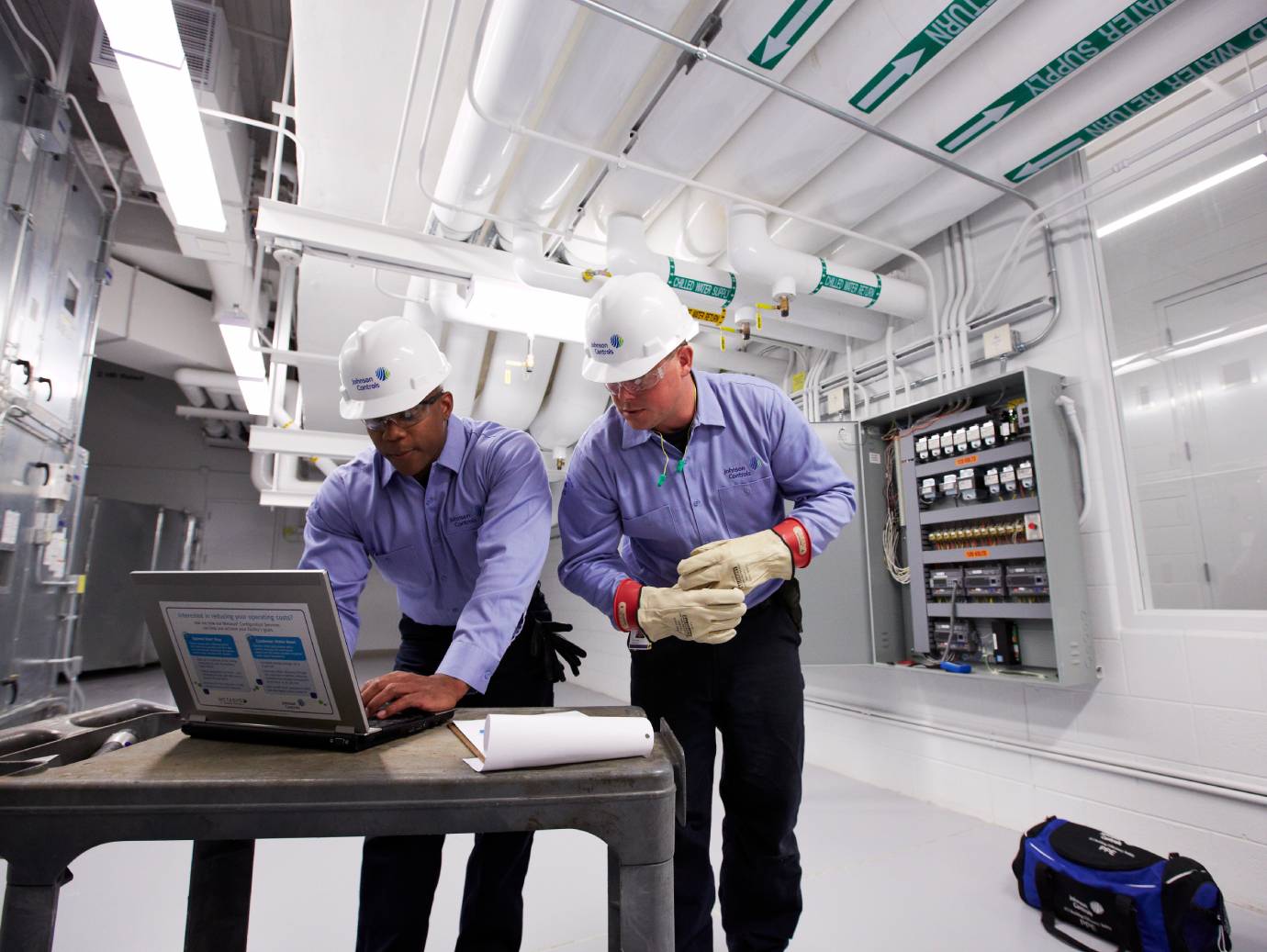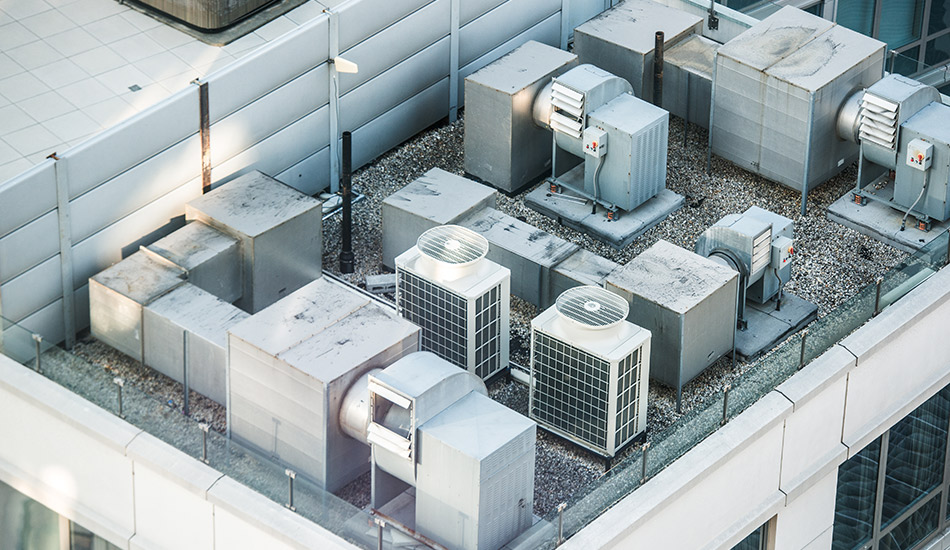Expert Tactics to Improve Indoor Air Quality with ductless mini splits
Choosing Between a Heat Pump and Heater: Trick Considerations for Your A/c Needs
When examining heating alternatives for HVAC requires, the choice between a heatpump and a heater can be complex. Each system uses unique advantages tailored to certain climates and power effectiveness objectives. Recognizing these distinctions is crucial for making an educated option. Trick factors such as installation costs and ecological effect better complicate the choice procedure. Which choice really lines up with one's comfort and sustainability choices? The adhering to sections will certainly explore these factors to consider in detail.
Comprehending Warm Pumps: Just How They Work and Their Advantages
While numerous home owners take into consideration various heating options, understanding how warm pumps function and their benefits can significantly influence their choice. Heatpump operate by transferring heat rather than creating it. In the winter, they remove warmth from the outdoors air or ground and move it inside your home, while in the summertime, they reverse this process, cooling the home by getting rid of heat outside. This dual functionality makes them functional for year-round environment control.One of the key advantages of heat pumps is their energy effectiveness. They make use of substantially much less electricity compared to traditional furnace, potentially causing lower utility bills (ductless mini splits). In addition, heat pumps have a smaller carbon impact, making them an ecologically friendly option. They additionally require much less maintenance than standard systems, contributing to long-term expense savings. On the whole, understanding the technicians and benefits of heatpump can assist home owners make informed decisions regarding their heating and cooling down requirements
Exploring Furnaces: Types, Procedure, and Advantages
Furnaces come in different kinds, consisting of gas, electrical, and oil designs, each with distinctive operational devices. Understanding these distinctions is crucial, as they influence efficiency and heating performance. Furthermore, heaters use numerous benefits, such as consistent warmth outcome and dependability in cooler environments.
Sorts of Furnaces
Heating systems can differ significantly in layout and procedure, with heaters being a prominent choice amongst home owners. There are a number of types of heaters, each making use of different gas sources and technologies. Gas heaters are typical, leveraging all-natural gas to produce warmth effectively. Electric furnaces, on the various other hand, utilize electrical resistance to produce warmth, frequently preferred for their straightforward installment. Oil furnaces, while much less common, are effective in areas with restricted gas access (ductless mini splits). Furthermore, condensing furnaces optimize energy efficiency by capturing and reusing exhaust gases. Each kind runs with a system of warmth exchangers and ductwork to distribute warm air throughout a home. Understanding the distinctions in between these furnace kinds is crucial for notified cooling and heating decisions
Benefits of Furnaces
For property owners seeking dependable heat during cold months, the advantages of heating systems are substantial. Furnaces provide consistent heating, making sure also temperature levels throughout the home. They are particularly effective in severe cool, typically outperforming heatpump in frigid conditions. Various types, consisting of gas, electric, and oil heating systems, supply versatility to fulfill diverse requirements and preferences.Furnaces likewise often tend to have lower preliminary installation prices compared to warm pumps, making them a more accessible choice for lots of. Their robust layout adds to a much longer life expectancy, with lots of units lasting over 15 years with proper maintenance. In addition, modern furnaces are commonly furnished with advanced modern technology for boosted efficiency, which can result in decreased energy costs. In general, heaters continue to be a reputable choice for effective home heating.

Power Efficiency: Comparing Warmth Pumps and Furnaces
When contrasting energy efficiency in between heatpump and heaters, the Seasonal Energy Effectiveness Proportion (SEER) plays a vital function in establishing efficiency. In addition, a functional expense analysis discloses the long-term monetary ramifications of each system. Understanding these factors can direct home owners in making notified choices concerning their heating services.
Seasonal Power Performance Proportion
Power performance plays a crucial duty in the decision-making procedure between heat pumps and heaters, particularly when thinking about the Seasonal Power Performance Proportion (SEER) This statistics measures the cooling efficiency of heat pumps over an entire cooling season, offering a standard means to assess performance. Greater SEER ratings indicate greater energy efficiency, converting to lower energy usage and lowered energy bills. On the other hand, heating systems are typically examined making use of the Yearly Gas Usage Effectiveness (AFUE) score, which reflects home heating performance. When contrasting these 2 systems, house owners must prioritize SEER rankings for warmth pumps, as they straight influence total power cost savings and ecological sustainability. An extensive understanding of SEER can notably influence the long-lasting fulfillment and cost-effectiveness of the chosen HVAC solution.
Functional Expense Analysis
Recognizing the operational prices linked with heatpump and heaters is important for house owners reviewing their alternatives. Heat pumps normally use higher power effectiveness, transforming electrical energy right into warm with very little waste. This leads to reduced regular monthly energy bills, especially in modest environments. Conversely, conventional heating systems, particularly gas versions, may have reduced ahead of time expenses yet can incur greater operational expenditures in time as a result of sustain costs and performance ratings.Moreover, heatpump can function as both heating and cooling down systems, potentially minimizing the need for separate HVAC systems. While initial investments for warmth pumps may be greater, their long-lasting savings in power efficiency can make them a more economical option for numerous houses. Mindful evaluation of neighborhood energy prices is vital to establish the very best option.
Installation Expenses: What to Anticipate for every Home Heating System
Installment expenses for furnace can vary significantly between warm pumps and heating systems, affecting homeowners' decisions. Heatpump generally have higher upfront installation costs, usually varying from $3,500 to $8,000, depending upon the device dimension and intricacy of setup. This includes the outdoor unit, interior handling system, and needed ductwork alterations. Conversely, furnaces have a tendency to have reduced preliminary expenses, averaging in between $2,500 and $6,000, which can be appealing for budget-conscious home owners. Installation costs can increase if substantial ductwork is required.Moreover, the selection of gas type for furnaces-- all-natural gas, propane, or electrical-- can also impact installation costs. While heat pumps provide energy efficiency, their first investment may deter some customers. Eventually, examining setup costs along with long-term financial savings and effectiveness will certainly help property owners in making informed decisions regarding their heater.
Environment Considerations: Which System Executes Much Better in Your Area
Just how do climate problems influence the efficiency of heating systems? The efficiency of warmth pumps and heating systems can vary substantially depending upon the local environment. In moderate climates, heatpump succeed by efficiently transferring warmth from the outdoors air, making them an energy-saving alternative. Nevertheless, their performance reduces in very chilly temperature levels, where they may my site struggle to extract enough heat. Conversely, heaters, particularly gas models, supply trustworthy and consistent heat despite exterior problems, making them more suitable in cooler regions.In locations that experience milder winters, heat pumps can run properly year-round, providing both heating & cooling. In contrast, areas with harsh wintertimes usually gain from the effectiveness of heaters. Eventually, recognizing the local environment is important when deciding between a warmth pump and a heating system, as it straight influences their functional effectiveness and total performance.
Upkeep Demands: Long-Term Look After Warmth Pumps vs. Furnaces
While both heat pumps and heaters require regular upkeep to assure peak efficiency, their particular requirements and treatment regimens differ considerably. Heaters usually require less regular interest, with yearly inspections sufficing to inspect for gas leakages, tidy filters, and evaluate overall performance. Their less complex layout usually enables simple repairs.In contrast, heatpump require semiannual upkeep due to their dual function in heating & cooling. This consists of cleaning coils, inspecting refrigerant degrees, and ensuring that both the interior and view it outside devices function at their best. In addition, heatpump maintenance commonly entails more intricate components, making professional servicing essential.Neglecting maintenance can lead to decreased efficiency and raised power expenses for both systems. Ultimately, house owners should think about these long-term care demands when choosing between a warmth pump and a furnace, as positive upkeep can prolong the life expectancy and performance of either system significantly.
Ecological Influence: Selecting a Sustainable Heating Choice
The environmental influence of heating unit is an important analysis for property owners seeking sustainable choices. Heatpump are typically a lot more energy-efficient than standard heaters, as they transfer heat rather than generate it, substantially decreasing carbon discharges. By utilizing sustainable power resources, such as air-source or geothermal heatpump, home owners can even more decrease their ecological footprint.On the various other hand, natural gas heaters release greenhouse gases and add to air pollution, though they frequently offer higher heat output. Nonetheless, innovations in innovation have actually caused the development of high-efficiency heating systems that lessen emissions.Ultimately, choosing a heating unit includes weighing performance against environmental effect. Property owners are encouraged to review neighborhood energy resources and rewards for sustainable systems, guaranteeing a choice that lines up with both personal convenience and environmental duty. The decision affects go to this web-site not only instant convenience yet additionally long-term sustainability and ecological health.
Regularly Asked Concerns
Just How Long Do Warm Pumps and Furnaces Typically Last?
The lifespan of warmth pumps usually ranges from 15 to twenty years, while heaters can last in between 15 to 30 years. Normal upkeep substantially impacts their durability and performance in providing home heating remedies.
Can I Utilize a Heat Pump in Incredibly Cold Climates?
Warm pumps can operate in incredibly chilly environments, but their performance lessens as temperatures decrease. In such conditions, supplemental home heating resources might be required to keep comfortable interior temperatures and ensure peak efficiency.

What Is the Noise Level of Warmth Pumps Versus Furnaces?
The sound degrees of heatpump and furnaces differ significantly. Typically, warmth pumps operate more quietly than standard furnaces, making them preferable for those delicate to sound, while heating systems may generate louder functional noises throughout home heating cycles.
Are Heat Pumps Suitable for Both Cooling And Heating?
Heatpump are undoubtedly appropriate for both heating & cooling (ductless mini splits). They operate by moving heat, giving efficient temperature control year-round, making them a functional selection for house owners seeking an all-in-one heating and cooling service
What Dimension Home Heating System Do I Required for My Home?
Identifying the appropriate dimension home heating system for a home requires examining elements such as square video, insulation quality, regional environment, and the home's format. Consulting a professional can ensure an exact analysis and suitable convenience. Heat pumps commonly use higher energy effectiveness, transforming electrical power into warmth with very little waste. In moderate climates, warm pumps stand out by effectively moving heat from the outside air, making them an energy-saving choice. On the other hand, heaters, particularly gas models, give dependable and consistent warmth no matter of outdoor conditions, making them more effective in chillier regions.In locations that experience milder winter seasons, warm pumps can run efficiently year-round, giving both heating and air conditioning. Heat pumps are generally a lot more energy-efficient than standard furnaces, as they move heat rather than generate it, significantly lowering carbon discharges. By using sustainable energy sources, such as air-source or geothermal warm pumps, house owners can additionally reduce their environmental footprint.On the other hand, natural gas heaters produce greenhouse gases and add to air pollution, though they usually offer higher warmth outcome.